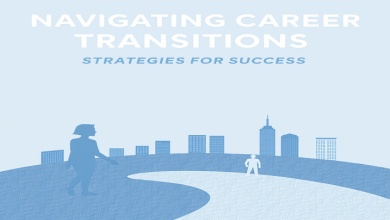Mastering Career Growth: Strategies for Long-Term Success

Introduction
In today’s fast-paced and ever-evolving job market, mastering career growth demands strategic planning, adaptability, and continuous learning. As industries transform with technological advancements and globalization, individuals need to adopt proactive measures to ensure their career trajectory aligns with both personal aspirations and market demands. This article explores key strategies for achieving long-term career success, providing practical advice for professionals at any stage of their career.
1. Understanding Your Career Path
A clear understanding of your career path lays the foundation for long-term success. Start by conducting a thorough self-assessment to identify your strengths, weaknesses, interests, and values. Tools such as the SWOT analysis (Strengths, Weaknesses, Opportunities, Threats) can be particularly helpful. Once you have a clearer understanding of your personal and professional inclinations, set realistic and achievable career goals.
- Skill Assessment: Identify both hard (technical) and soft (communication, leadership) skills you possess. Consider taking aptitude tests or using career assessment platforms.
- Goal Setting: Establish both short-term and long-term objectives. Goals should be SMART (Specific, Measurable, Achievable, Relevant, Time-bound).
2. Continuous Learning and Skill Development
The demand for new skills in the workplace is constant, necessitating continuous learning. Embrace a learning mindset to stay relevant and competitive.
- Online Courses and Workshops: Platforms like Coursera, edX, and LinkedIn Learning offer a plethora of courses tailored to various industries.
- Certifications and Advanced Degrees: Depending on your field, additional certifications or degrees can significantly boost your career prospects.
- Reading and Research: Regularly consume industry-related content through books, journals, and reputable online sources to stay updated on trends.
3. Building a Strong Professional Network
Networking is a crucial element in career advancement. Expanding your professional network opens doors to new opportunities and insights.
- Networking Events and Conferences: Attend industry conferences, seminars, and workshops to meet like-minded professionals and leaders.
- Mentorship: Seek mentors who can provide guidance, share experiences, and offer constructive feedback.
- Leveraging Social Media: Platforms like LinkedIn are powerful tools for building your professional brand and connecting with others in your field.
4. Adapting to Industry Changes
Industries are constantly evolving due to technological advancements and market changes. Being adaptable is key to staying ahead.
- Trend Analysis: Regularly analyze trends in your industry. Subscribe to newsletters and join professional groups to gauge shifts that may affect your career.
- Reskill and Upskill: Be open to gaining new skills or refining existing ones to meet changing job requirements.
- Versatility: Cultivate a diverse skill set to increase your adaptability and value to employers.
5. Personal Branding and Visibility
Building a strong personal brand increases your visibility and establishes credibility in your field.
- Online Presence: Create a professional website or blog where you can showcase your expertise, share insights, and build an audience.
- Content Creation: Write articles, give presentations, or produce videos to share your knowledge and opinions on relevant topics.
- Engagement: Actively engage with others in your industry through comments, collaborations, and discussions.
6. Balancing Professional and Personal Life
While career success is important, maintaining a healthy work-life balance is crucial for long-term well-being.
- Time Management: Use tools and techniques to effectively manage your time and prioritize tasks.
- Setting Boundaries: Establish clear boundaries between work and personal time to prevent burnout.
- Wellness Practices: Incorporate wellness activities such as exercise, meditation, and hobbies into your routine to maintain physical and mental health.
Conclusion
Achieving long-term career success requires a combination of strategic planning, lifelong learning, and adaptability. By understanding your career path, continuously developing skills, nurturing professional networks, adapting to changes, and maintaining a healthy work-life balance, you can position yourself for sustained career growth. Remember, the journey is ongoing, and periodically reassessing your strategies and goals is essential to navigating your career successfully.





